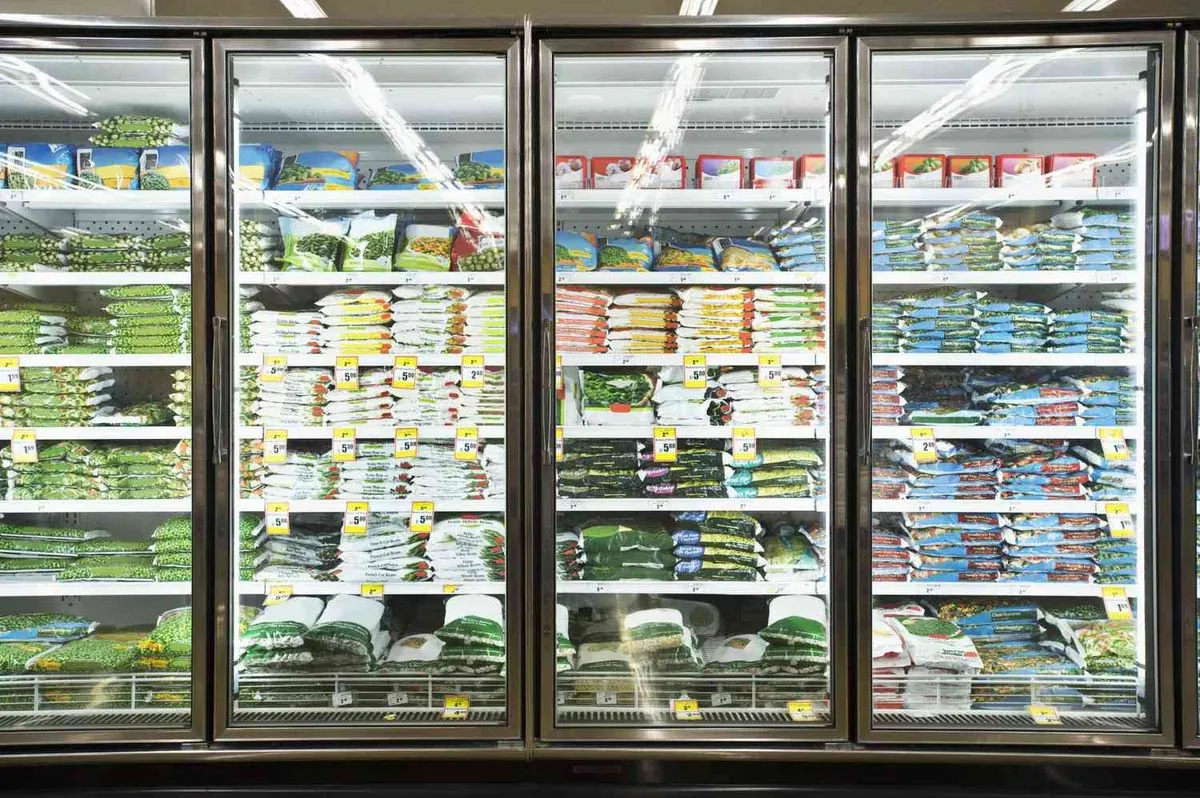Frozen Foods: From Snubbed to Sought-After in British Kitchens
Frozen food sales surge 15% as Britons reassess nutritional value and convenience. Experts highlight benefits of frozen vegetables, while cautioning against ultra-processed options.

The perception of frozen foods in British households has undergone a significant transformation. Once viewed with skepticism, these convenient options have seen a remarkable 15% increase in sales over the past year. This shift challenges the notion that frozen foods are inferior to fresh alternatives, a belief held by one in three Britons before the pandemic, according to a survey by The Grocer.
Laura Clark, a registered dietitian, advocates for the nutritional benefits of certain frozen foods. She notes, "Frozen vegetables are often frozen at source, retaining maximum nutritional value. They're often cheaper and can help maintain dietary diversity during busy weeks."
Frozen food preservation has a rich history, dating back to 1000 BC in China. The modern frozen food industry, however, owes much to Clarence Birdseye, who invented the quick-freezing method in 1924. This innovation paved the way for the global frozen food market, which was valued at $291.3 billion in 2022.
When selecting frozen foods, it's crucial to scrutinize ingredients and avoid ultra-processed options. Here's a breakdown of various frozen food categories:
Breaded Chicken:
- Best option: Products using actual thigh meat with minimal additives
- Avoid: "Formed" chicken with numerous unfamiliar ingredients
Oven Chips:
- Look for: Higher fiber content (2.8g per 100g) and minimal additives
- Be wary of: Products containing ultra-processed food additives like dextrin
Pizza:
- Healthier choice: Simple ingredient list, despite higher saturated fat and salt
- Avoid: Pizzas with maltodextrin, dextrose, and excessive ultra-processed additives
Frozen Curry Ready Meals:
- Better options: Lower in calories, fat, and salt; higher in protein
- Caution: Vegan meals often use ultra-processed protein replacements
Frozen Vegetables:
- Highly recommended: Spinach, broccoli, and edamame beans
- Benefits: Nutrient-dense, cost-effective, and versatile
Frozen Fish Products:
- Look for: Minimal processing and additives
- Avoid: Products with "formed" fish pieces and excessive coatings

Frozen vegetables emerge as the true stars of the freezer aisle. They're not only more affordable but also lock in nutrients effectively. The first frozen vegetable, spinach, was introduced in the 1930s, and the industry has since expanded significantly.
"I always buy frozen spinach and edamame beans, both of these things can be put straight into dishes without the need to defrost first so they're super quick and such an easy way to boost the fibre content of a meal."
It's worth noting that freezing can actually increase the fiber content in some fruits and vegetables. Moreover, frozen foods can help reduce food waste, as they can last up to a year in a properly maintained freezer.
In conclusion, while frozen foods offer convenience and potential nutritional benefits, consumers should remain vigilant about ingredient lists. By choosing wisely, Britons can harness the advantages of frozen foods while avoiding the pitfalls of ultra-processed options.


































